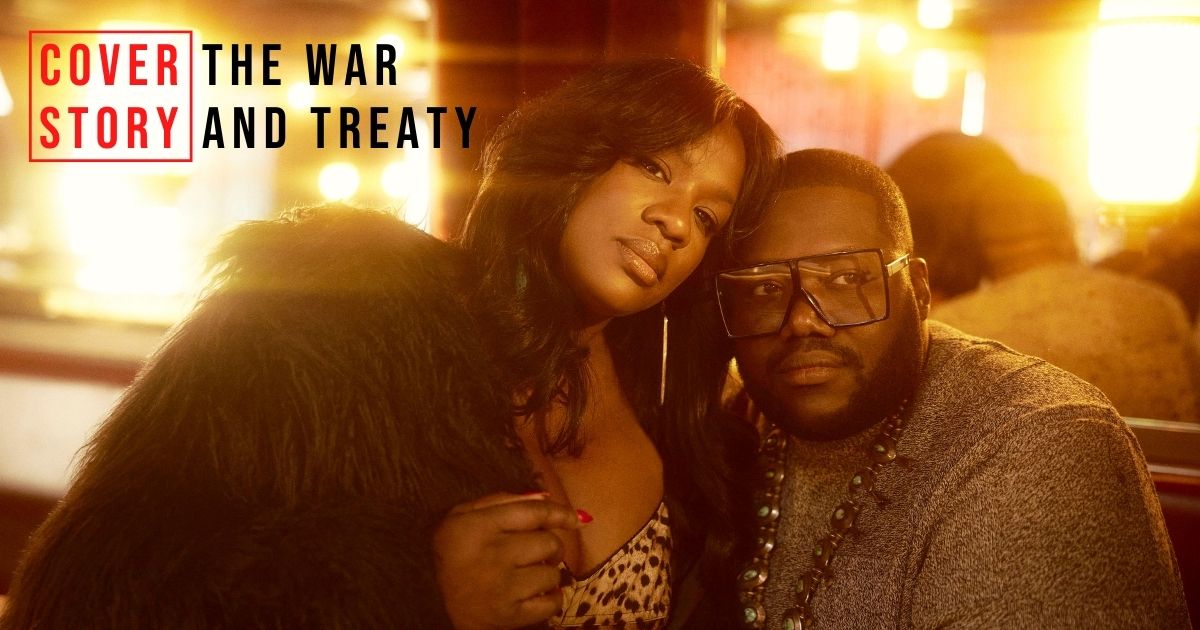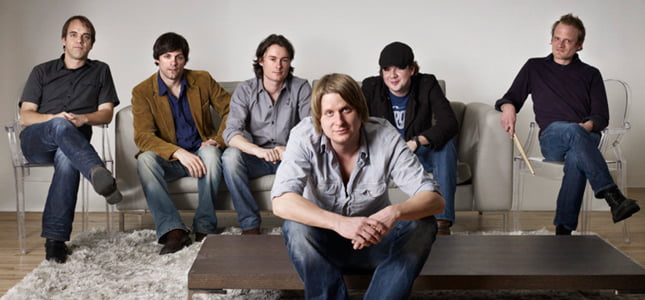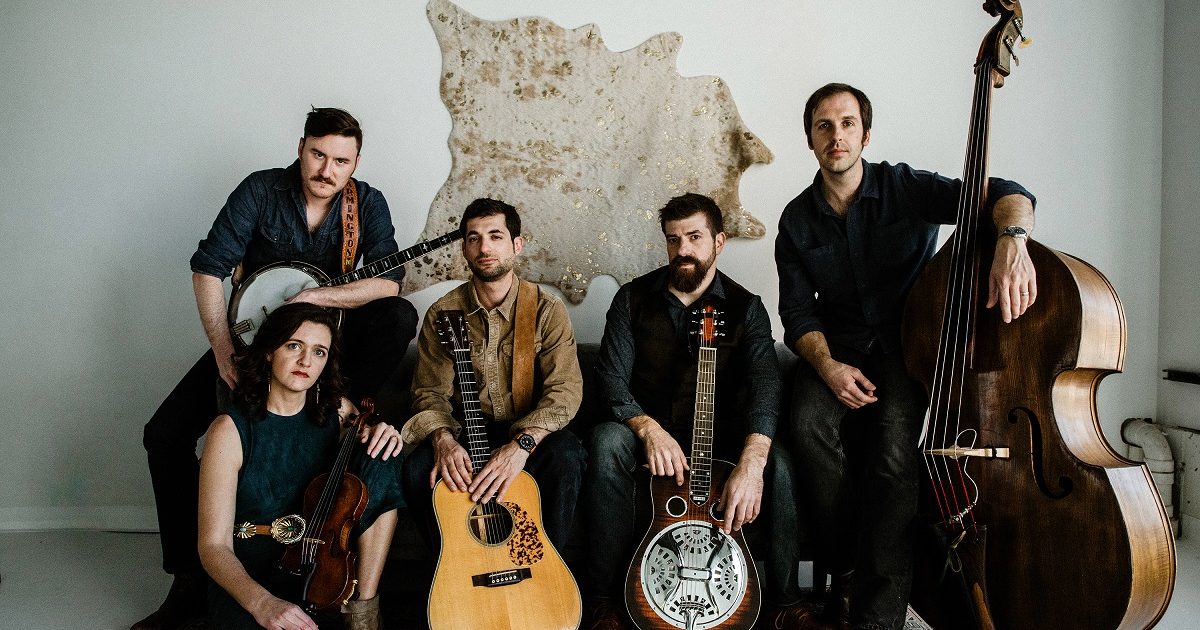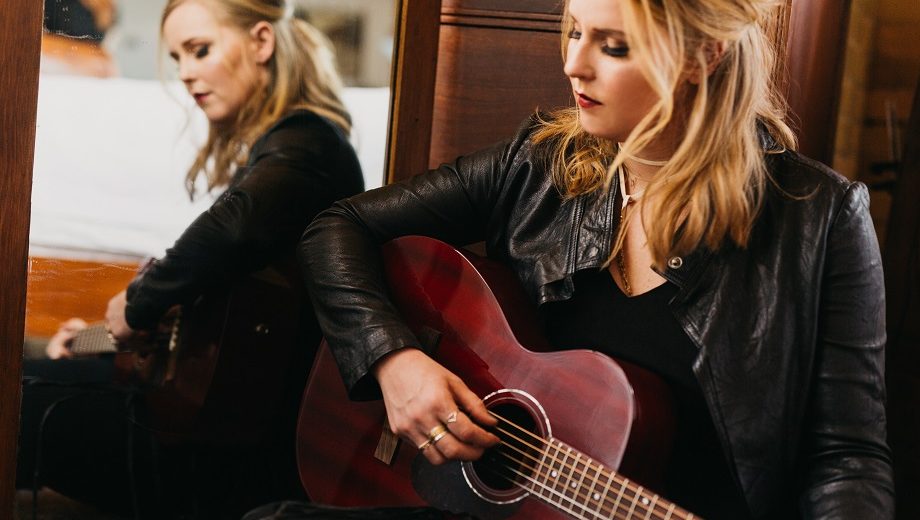The War and Treaty’s new album, Lover’s Game, is a fitting tribute to the force that brought Michael and Tanya Trotter together. The Iraqi war veteran and the former singing prodigy who signed her first record deal at 16 have been capturing hearts with their riotously soulful sound since they began performing together in 2014. At home in Nashville, mid-tour, they discuss with BGS how their partnership has shaped their songwriting.
You’ve been together 13 years and your latest songs suggest you’re as fiercely in love as ever. What’s the secret?
Michael: This is what Lover’s Game is all about… it’s us realizing that there’s more to relationships, there’s many different kinds of love. And when you’ve found something serious, hold on to it.
You’ve admitted to being inseparable since you met at a festival and there’s a nod to it in the track “Blank Page” – “When I first saw you, I said to myself that’s a good look…” What was it you saw in each other that day?
Michael: I saw honesty. A lot of love in Tanya’s eyes. A desperate kind of hope: “Somebody in this world has to make me an honest woman when I say love is still here.” And I wanted to protect that. And hold her. Aside from the fact I saw her walk away one day and the bounce of her backside really encouraged me…
Tanya: [laughing] He took what I was going to say. When I first saw him I literally saw love in his eyes. And he talked so vulnerably – you don’t meet people who say right away “I have nothing.” Most people want to put on a front. And I had a son, and when I saw him with his – now our – daughter, it made me want to be a better mother.
As a married couple who tour you’re together all the time. And your performances are famously emotional affairs. Do you have to take time apart from each other?
Michael: [nodding vigorously] I’m learning that Tanya needs that a lot. She’s created a space in our house called The Pink Room where she goes alone to recharge. She says I’m tired, get out of here, go away man! I am completely different. I need to be stimulated till I pass out. It’s irritating!
Tanya: It’s not irritating, he just needs to watch a movie. He’ll put his bags down, sit in his recliner and the TV is on for three or four hours, that’s his way of coming down.
Michael: She’s being kind. Let me tell you how bad it is. Today, she wanted to get her nails done, but I didn’t want to be apart. So I just made some shit up: “I have some places to go…”
Tanya: [surprised] Oh, you didn’t have anywhere to go?
Michael: I went to goddamn Wendy’s.
Tanya: [laughing] Oh my God! He said he had this big plan…
Michael: I was going to tell you eventually, this is embarrassing. I circled the parking lot, went to Wendys, had a little food, went back to the car and watched movies.
It’s like your song “That’s How Love Is Made” says… “Can’t hate all your wrongs and only want all your rights…”
Michael: “Can’t say I’m tired when I don’t ask for help…” In my moments of neediness I will say I actually need you to touch me today. Hold my hand, rub my hair, put water on my head, because I can’t stop these thoughts racing. That’s post-traumatic stress disorder I have from the war. And she knows immediately how to get in gear. That is our balance, accepting each other’s…
Tanya: …quirks.
Do you think that’s part of your bond, that ability to understand what he’s going through? In your song “Five More Minutes” the pair of you wrote about the moment that Michael’s PTSD overwhelmed him to the point where he was ready to take his life. But Tanya you had your own experience of depression before you met him…
Tanya: Yes, when I was living in Dallas in my mid-20s, I took pills and ended up on 72-hour suicide watch. When I came out of hospital, I stayed with my mum for a year, and no discredit to my family but when you’re going through a dark time most people don’t know what to do. They’re clueless, even the ones who love you with everything in their heart. When I learned what Michael was going through I thought “What would I have wanted someone to do for me?” I would have wanted someone to literally stop everything they were doing and just help me get back to me. “You be better” doesn’t fix a person who is on the brink of giving up. You’ve got to spend time to get them off the ledge. Michael’s scars were invisible to the average person who doesn’t know the signs. He was giving love to everybody and no one was pouring it back into him.
And it was your experiences of war, Michael, that first led you to songwriting, paying tribute to the comrades you lost in Iraq. Is it hard to revisit what you went through then, having to go into detail for the sake of the writers working on the movie?
Michael: I can talk about it now – I can’t shut up about it. I understand the responsibility to tell how you made it out. Unlike some of my friends, I got home.
It feels like things have really taken off for the band this past year – you won the Americana Music Association’s award for duo/group of the year last September, and your set at the CMA Awards was the most talked about performance of the night. But back in 2020, when you played at the Grammys you must have thought that the breakthrough was coming a lot sooner…
Michael: Yes, from 2018 The War and Treaty had a real trajectory, and our management was saying 2020 was going to be our year. We were getting different invitations to perform, we were getting calls from John Legend saying “Let’s go on on tour…” and then COVID happened. It was a very emotional time, because Tanya was part of the first wave that caught COVID and I thought she was going to die. It was pretty bad. She would cough and it sounded like 10 lawnmowers being started up. So this moment now, we’ll never ever take it for granted, every day is by grace.
Did that experience change your approach to music?
Tanya: Yes – it taught me you’re always learning. I started taking vocal classes. I found a personal trainer online. I was more open to writing with other people.
Michael: The subjects we wrote about broadened, we realized it’s not just about what we’re going through. And our writing deepened because we lost people – we lost John Prine, we lost my aunts and my uncles, so many people where it crippled you for a minute. You’d go to write and all you’d get is tears. And it wasn’t just the pandemic, it was what happened after the George Floyd killings too. You have to respond to that. The problem is in how we see ourselves, we don’t see ourselves as one, we see ourselves as opposites. But we’re one race, we’re the human race.
Is songwriting therapeutic for you?
Michael: Always. I have to write because I don’t always get a chance to verbalize properly what I’m feeling.
You used to say you wrote 10 songs a day and most of them ended up in the trash can.
Michael: I’ve been chastised about the trash can. One man’s trash is another man’s potpourri. I keep everything now.
Tanya, you’ve been in the business three decades now – what have been the most valuable lessons?
Tanya: There’s a thin line between your creativity and the business. You have to separate the two. When we started we tried to do everything ourselves but approaching music from a business standpoint takes the specialness away from what you do when you get on stage. Let the manager do that kind of thinking, let them do what they’re paid to do. Although you still have to know what’s happening – learn to read a contract.
Your mother was a professional opera and Broadway singer…
Tanya: And my brother’s a gospel singer. My dad can’t sing but he still tells everyone we got it from him!
Did your mum teach you and your brother to sing?
Tanya: No but she exposed us to different styles. She put us in ballet and tap classes, too.
Michael, was your family into music?
Michael: I came from a weird, split home – my mother only listened to contemporary Christian music, she didn’t want to hear secular music. Dad was a rebel, he was listening to death metal! And when he was driving he would only listen to classical – Mozart, Paganini… Then my grandmother, she was from the country, so Granny’s favourite artists were Willie Nelson and The Outlaws and Loretta Lynn.
What were you drawn to?
Michael: Much like Tanya I was in love with Rodgers & Hammerstein musicals, and gospel, everything from Thomas Whitfield and James Cleveland to Shirley Caesar and Sam Cooke. When I joined the military, Johnny Cash guided me, and kept me in some tough times when I needed to be kept. I grew up listening to music, period. I didn’t know the difference between genres.
You’re a keen appreciator of bluegrass, too – Jerry Douglas and Chris Eldridge both played on your last album, Hearts Town, you sat in with Billy Strings at WinterWonderGrass…
Michael: I grew up on The Gaithers and Ralph Stanley, so it’s great seeing bluegrass get this pump of life with Billy Strings, he’s pretty fearless right now. I don’t think people really truly understand what a true genius Chris Eldridge is as well.
The atmosphere at your gigs is often described as being like a “revival meeting” – how much does the background of your church tradition influence your sound?
Tanya: It’s intentional.
Michael: Yeah, we used to run from this question. Because the answer can be crippling when the religious experience for African Americans is dictated by pain. But that grit, that power, that resilience that is in Aretha Franklin’s version of “Amazing Grace,” the reverence that is in Mahelia Jackson’s “How I Got Over” – now I know, no matter the history, gospel singers were placed in our world to be the uplifters, to give hope. And for Tanya and I that’s in our blood. So to be able to put that same vigour, that urgency to a love song, to say I mean what I say – “I wholeheartedly believe that when I say I love you no one else can say it the same way” – that’s the gospel. Love.
Tanya: Every December we go over to Switzerland and perform at a gospel celebration. And those songs – “O Happy Day,” “Eye of the Sparrow” – pack out the place. Gospel means something different in Japan or Europe and that helped us open up our eyes. People would show up to our shows with a fire, wherever they go they expect you to bring hope. We want to keep that feeling and bring it back to the US.
These have certainly been times that people in the US and in the world in general need hope.
Tanya: Michael said to me this morning that the world is suffocating. We may not have been wearing masks for a while but people still feel like they’re drowning. They want to breathe again.
Michael: Well come on to our show, ’cos we’re going to breathe together.
Photo Credit: Austin Hargrave






